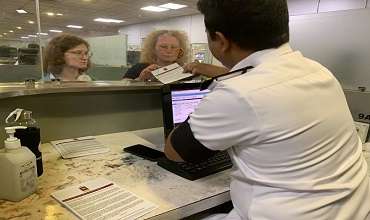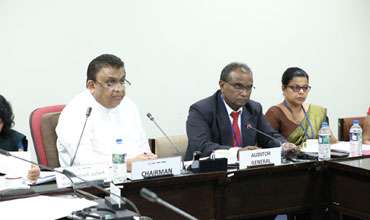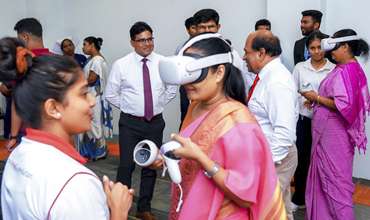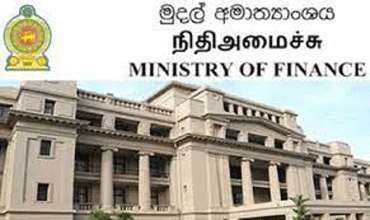- Last Update 2024-04-17 16:02:00
Changes at the Central Bank?
Speculation was rife in Sri Lanka’s money and foreign exchange markets on Friday that Central Bank Governor Prof. W.D. Lakshman had resigned and would be replaced by former Governor Ajith Nivard Cabraal.
Neither Prof. Lakshman nor Mr. Cabraal was unavailable for comment or clarification on Friday morning with several calls to their mobile numbers going unanswered.
One newspaper on Friday said Prof. Lakshman has resigned and suggested that Mr. Cabraal was to be appointed. During this week, newspapers have quoted Mr. Cabraal as saying that “I cannot deny nor confirm (reports that he is to be appointed to the Governor’s post)”.
In the meantime, a planned media conference chaired by the Governor for 11 am today (Friday) has been rescheduled for 3 pm today, the Central Bank said without giving reasons for the change. The briefing was to explain this month’s monetary policy review of the Monetary Board, after its meeting on Wednesday. This is a regular monthly briefing for the media to explain any changes in interest rates or the policy direction of the bank.
If appointed, it would be Mr. Cabraal’s third term in office, probably a record for a Central Bank Governor.
The foreign exchange markets were subdued this week after the Governor on Tuesday issued a directive asking banks to stick to the Central Bank daily announced rate of Rs.202-203 per dollar instead of the Rs. 220-230 rate that exporters have been getting. Money market dealers said that import bills were currently being serviced mostly by remittances from Sri Lankan workers abroad since exporters were not converting their dollars.
On Thursday, in another move by the Central Bank to save scarce foreign exchange and reduce non-essential imports, a 100 percent deposit margin when opening LCs was imposed on a number of import items. Banks were also told they cannot advance cash to these importers to meet the deposit, putting further pressure on importers.
Items affected include mobile phones and fixed phones, home appliances such as fans, TVs, refrigerators, washing machines and digital cameras, clothing and accessories, household and furniture items, air conditioners, fruits such as fresh apples, grapes and oranges, cosmetics and toiletries, beverages such as beer and wine, other food and beverages such as cereal preparations, starches, chocolates, cheese and butter, and other non-food consumables such as musical instruments, tobacco products, toys and stationery.
You can share this post!
-
Still No Comments Posted.
Name
Content

- April 12, 2024 - 284 - 0
Immigration officers oppose outsourcing issue of visas
Immigration officers today turned up for work with black bands around their hands as a mark of protest against the government.

- April 10, 2024 - 189 - 0
Colombo Air Show and Defence Exhibition by SLAF
Connecting through air between nations, the Sri Lanka Air Force (SLAF) is set to carry out ‘Colombo Air Show and Defence Exhibition 2024’ (CADE 2024) from May 29 to June 2 under the theme “into the future” at Port City, Colombo.

- April 16, 2024 - 178 - 0
Former state Minister Palitha Thewarapperuma passes away
Former State Minister Palitha Thewarapperuma passed away at the age of 64, after being electrocuted today evening.

- April 9, 2024 - 135 - 0
CCTV cameras purchased for Immigration Dept. six years ago yet to be installed
Related Articles

Excise officer remanded for distorting Rohana Beddage’s song
- 17/04/2024 - 66 - 0

Two Parliamentary groups condemns ill-treating disable woman
- 17/04/2024 - 57 - 0

Street-food seller gets bail, after being rude to tourist
- 17/04/2024 - 79 - 0

Commemorative event for fifth anniversary of Easter bombings
- 17/04/2024 - 61 - 0









Leave Comments